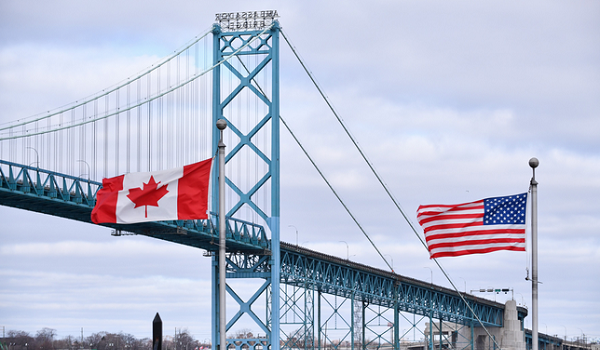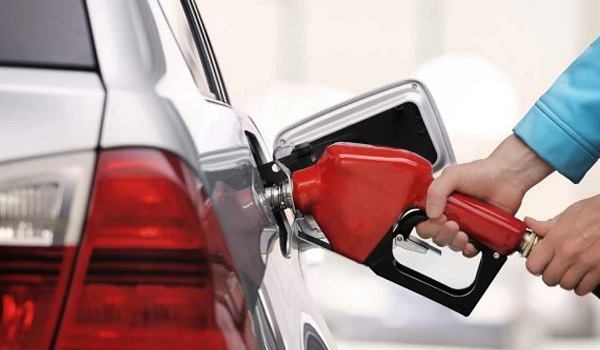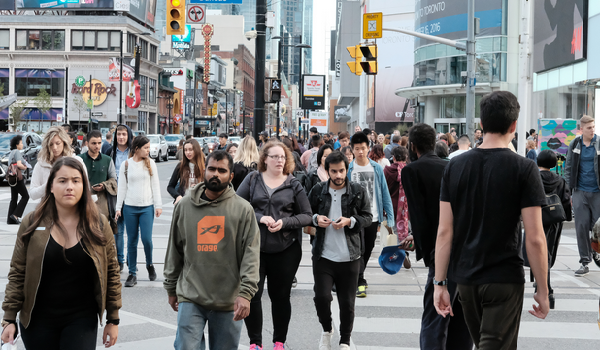In an effort to get Trump to walk back tariff threat, Canada assured helicopters of more border security
Canada has promised Donald Trump that it will deploy additional drones, helicopters and personnel to safeguard its side of the border, the federal Public Safety Minister says, in an effort to persuade the president-elect to shelve the steep tariffs that he’s threatened on Canadian goods.
But Dominic LeBlanc acknowledged that Canada has so far not obtained assurances that Mr. Trump will back away.
Mr. LeBlanc accompanied Prime Minister Justin Trudeau to a dinner Friday night at Mar-a-Lago, Mr. Trump’s resort residence in Palm Beach, Fla., where they spent three hours talking to the incoming U.S. leader and his team.
Mr. Trump vowed on social media last Monday to impose 25-per-cent tariffs on imports from Canada and Mexico until the two countries stop illegal migration and smuggling of opioids such as fentanyl into the United States.
In Florida, the Americans were told that Canada is “going to look to procure, for example, additional drones, additional police helicopters” and redeploy staff as needed, Mr. LeBlanc said to CBC News Sunday.
“It’s important, I think, to show Canadians and the Americans that we’re stepping up in a visible and muscular way, and that’s exactly what we’re going to do.”
The Public Safety Minister said he remains confident that Mr. Trump will ultimately realize the tariffs are the wrong idea. And he believes that Canada still has time to make its case.
“The public threat, the social-media posting, was on Monday evening. Four days later, we were at his residence in Florida having dinner to talk about exactly that context,” Mr. LeBlanc told CBC News.
“We’re going to continue to work with his incoming administration, and I’m confident that the Americans will understand that it’s not in their interest or in Canada’s interest, obviously, to proceed in this way.”
Mr. Trump’s promised tariffs would hit both the Canadian and U.S. economies hard. In 2023, the United States was the destination for 77 per cent of Canada’s total exports. Canada represents more than half of the U.S.’s petroleum imports, meaning tariffs would almost certainly drive up prices at the pump for Americans.
As The Globe and Mail reported Saturday, Mr. Trump was in high spirits during the dinner with Mr. Trudeau and played music from his iPad through patio speakers including two versions of Leonard Cohen’s Hallelujah, a song from the musical Cats, as well as work by Luciano Pavarotti.
Mr. LeBlanc cited the president-elect taking requests for music as an example of the “warm and cordial” nature of the meeting.
He said Mr. Trump told stories about the presidential election campaign and “asked a lot of questions of the Prime Minister about different world leaders or different circumstances around the world.”
He said Mr. Trump also talked about his disappointment that President Joe Biden cancelled the Keystone XL pipeline project that would have shipped hundreds of thousands of barrels per day of Canadian oil to the United States.
Mr. LeBlanc said he believes that the meeting established “a personal series of rapports that I think will allow us to continue to make that case” for Canada, including with Mr. Trump’s nominee for commerce secretary, Howard Lutnick. “Incoming secretary Lutnick texted me the next morning and wants to get together again in the next few weeks to continue the conversation around the border.”
Mr. Trudeau’s visit, which makes him the first G7 leader to meet with Mr. Trump in person since the U.S. presidential election in early November, was initially kept secret by both sides.
Roland Paris, a former foreign-policy adviser to the Prime Minister, and director of the University of Ottawa’s Graduate School of Public and International Affairs, said it makes sense for Canada to develop close ties to the U.S. president-elect. The United States, as Canada’s most important trading partner, is also its most important foreign-policy relationship.
“It’s a no-brainer for the Prime Minister to be reaching out personally to the incoming U.S. president,” Prof. Paris said. ” It’s really important for whoever our prime minister is to have a good channel of communication open with the U.S. president, and this is a critical moment to have that conversation, even before Donald Trump comes into office.”
Kirsten Hillman, the Canadian ambassador to the United States, said in an interview Sunday that she can’t yet say whether Canada will manage to escape Mr. Trump’s threatened tariffs.
Ms. Hillman, who also accompanied Mr. Trudeau to Mar-a-Lago, said Mr. Trump “really does believe in tariffs as an important economic policy and negotiating tool, so I think it’s too soon to tell whether or not, and when, we will be able to get ourselves out from under them.”
She said Canada nevertheless has all the arguments necessary to justify shelving the tariffs.
“We have a lot of allies in the United States that don’t think that these tariffs on Canada are the right move for the United States, and including a lot of Republicans.”
According to numbers from U.S. Customs and Border Protection, in the past fiscal year, U.S. border-patrol officers stopped people 23,721 times trying to cross illegally from Canada, more than double the 10,021 the year before. But it pales in comparison with the Mexican border, where officers stopped people more than 1.5 million times in the past fiscal year.
According to U.S. government figures, border guards intercepted 19.5 kilograms of fentanyl along the Canadian border last year, which is 0.2 per cent of the nearly 11 tonnes intercepted in the United States.
Ms. Hillman said the conversation at Mar-a-Lago focused mostly on the border and did not get into detail on tariffs.
Mr. Trump’s focus “is really on the border and the motivation for the tariffs, as he’s put it out, is the border,” the envoy said
Ms. Hillman described the Canadian strategy as trying to show Mr. Trump and his people how Ottawa could work with him on the issues he cares about.
Conservative Leader Pierre Poilievre called on Sunday for the federal government to deputize provincial police officers to help out at the border, and to give border guards more power to enforce laws away from their border posts.
Expanding the powers of the Canada Border Services Agency would mirror a U.S. policy that allows border guards to enforce immigration laws up to 100 miles, or about 160 kilometres, within the United States. Under that policy, they use highway checkpoints leading from the border to catch unauthorized border crossers who manage to escape detection at the border.
Ms. Hillman said the Canadian delegation sought common ground with Mr. Trump over the fentanyl crisis, pointing out to the president-elect that Canada has as many per capita overdose deaths from the synthetic opioid as does the U.S.
“The fentanyl crisis is a deeply important matter for Donald Trump. He takes it very seriously. It’s personal to him,” she said.
In a Saturday social-media post about his dinner with Mr. Trudeau, Mr. Trump focused more on fentanyl than on tariffs and migration.
“I made it very clear that the United States will no longer sit idly by as our Citizens become victims to the scourge of this Drug Epidemic, caused mainly by the Drug Cartels, and Fentanyl pouring in from China. Too much death and hardship!” Mr. Trump wrote on his Truth Social platform.
He said Mr. Trudeau had committed to work with him.
Mr. Trump wrote that they also discussed migration, trade deals and “the massive Trade Deficit the U.S. has with Canada.” Most of the deficit is because of petroleum, which the U.S. imports in large quantities from Canada because it does not itself produce enough to meet domestic demand. The president-elect described the meeting as “very productive.”
In addition to Mr. LeBlanc, Mr. Trudeau’s chief of staff, Katie Telford, was also at the table. On the U.S. side were three of Mr. Trump’s cabinet picks: Mr. Lutnick, Mike Waltz and Doug Burgum, nominees for commerce secretary, national-security adviser and interior secretary, respectively, along with their wives. Pennsylvania senator-elect Dave McCormick and his wife, former White House adviser Dina Powell, were also in attendance.
Julia Nesheiwat, Mr. Waltz’s wife, is a vice-president at Calgary-based pipeline company TC Energy.
This article was first reported by The Globe and Mail













